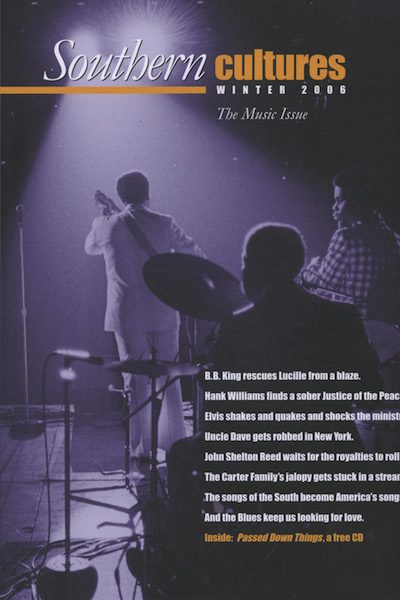“I almost lost my life trying to save my guitar.”
B.B. King’s name is synonymous with the blues. At the age of eighty-one, the blues patriarch maintains a rigorous schedule of performances throughout the nation and overseas that would exhaust a much younger artist. King’s performances and recordings have shaped the blues for more than six decades, reaching out to each new generation in terms they understand and embrace.
As an artist, B.B. King defies definition. Born Riley B. King in 1925 on a plantation in the Mississippi Delta near the towns of Itta Bena and Indianola, he was profoundly shaped by gospel singers in the black church, as well as by blues artists like Blind Lemon Jefferson and Lonnie Johnson. In 1946 he hitched a ride to Memphis, where he lived for ten months with his mother’s cousin Bukka White, a noted blues artist. In Memphis, King launched his career as the “Pepticon Boy,” advertising Pepticon medicine on radio station wdia and also performing with Bobby Bland, Johnny Ace, and Earl Forest in a group called “The Beale Streeters.” King adopted the nickname “The Beale Street Blues Boy,” which he shortened to “Blues Boy,” and then to “B.B.”


